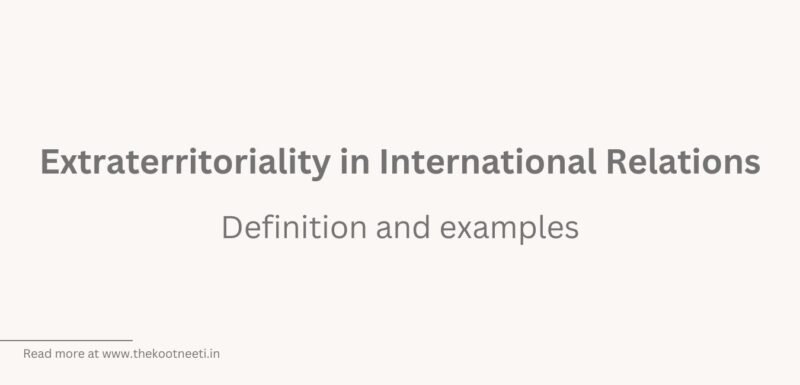Extraterritoriality in International Relations: Definition and examples

Extraterritoriality refers to the legal principle that allows a state to exercise jurisdiction beyond its own territory. This can take a number of forms, including the application of its own laws and regulations to individuals and organizations outside its borders, or the exercise of criminal jurisdiction over offenses committed abroad.
In the field of international relations, extraterritoriality can be a contentious issue, as it can involve conflicts of jurisdiction between states and raise questions about the authority of states to act outside their own territory.
There are a number of examples of extraterritoriality in international relations, including:
- Extraterritorial application of laws: Some states have laws that apply to individuals or organizations operating outside their borders, such as anti-corruption laws or laws governing the conduct of multinational corporations.
- Extraterritorial jurisdiction over crimes: Some states assert jurisdiction over crimes committed abroad, such as crimes against humanity or terrorism.
- Extraterritorial application of sanctions: States may also apply sanctions or other measures extraterritorially, such as economic sanctions or travel bans, in an effort to exert pressure on other states or non-state actors.
Overall, the issue of extraterritoriality is a complex one in international relations, and it can have significant implications for the relationships between states and for the exercise of state power.


















